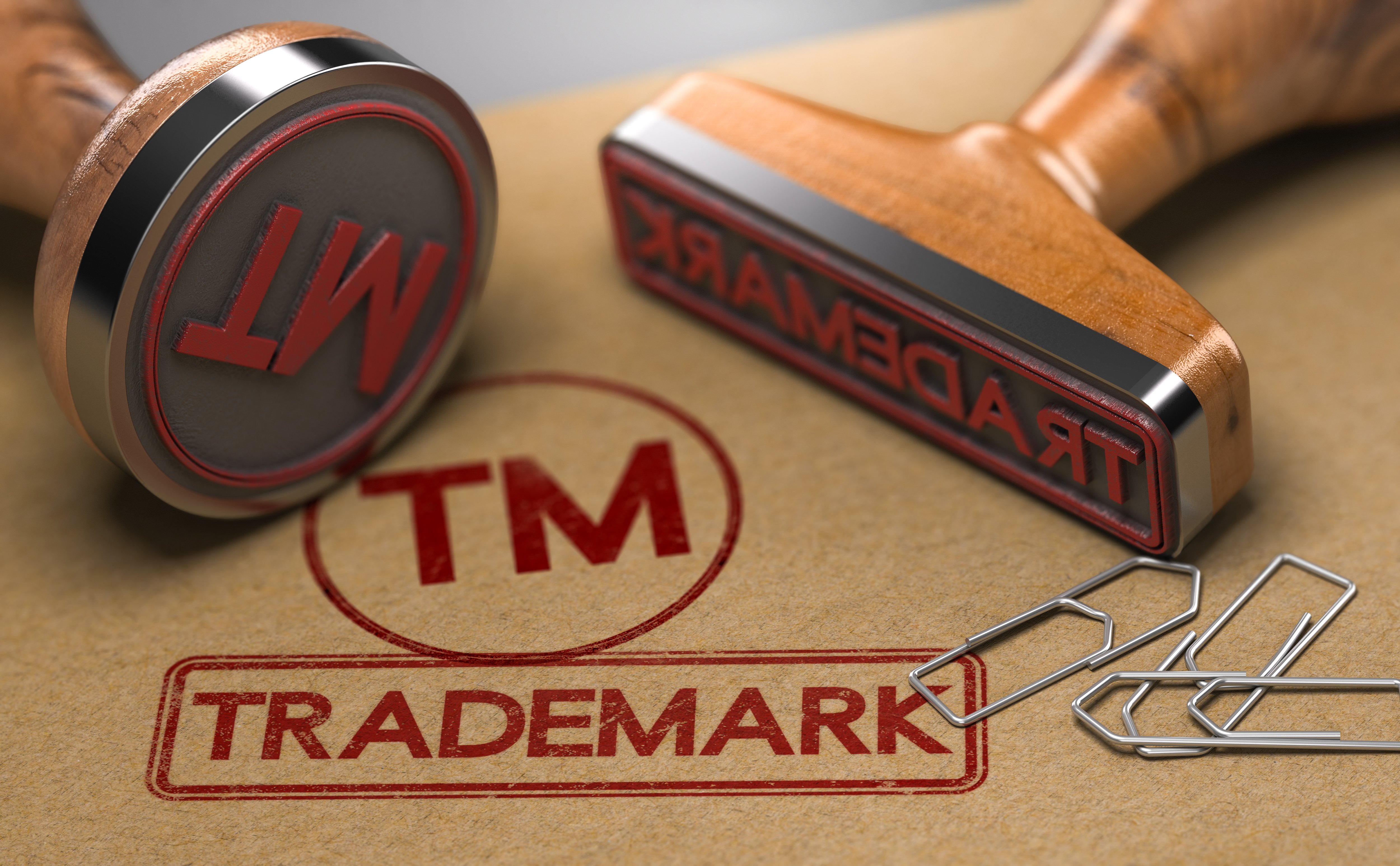Questions this Webinar Answers?
- What is at-will employment and what are the exceptions to this rule?
- How do statutory, common law, and contractual exceptions impact at-will employment?
- What is the role of employee handbooks and manuals in defining employer-employee relationships?
- How do small businesses, particularly breweries, keep up with numerous, evolving regulations?
- What are the key aspects of discrimination laws, and what types of discrimination may occur in the workplace?
- What should employers know about termination, workplace safety, and workers' compensation insurance?
- How does the law protect trade secrets and handle non-compete agreements in the context of breweries?
- What are the specific considerations for tipped employees, including regulations related to tipping, minimum wage, and overtime pay?
- What are the specific employment laws impacting craft breweries, and what notable changes have occurred recently?Craft breweries face a multitude of challenges when it comes to employment laws, similar to small businesses. However, due to their unique work environment, culture, and risk exposure, they require a deeper understanding of these regulations.
The Different Needs of Craft Breweries
Unfortunately, many "one-size-fits-all" employment law practices fail to adequately cater to the needs of breweries, leading to hasty actions by both employers and employees. This can result in unnecessary lawsuits and hefty settlements that have the potential to force breweries out of business.
To illustrate the extent of this issue, court filings reveal that breweries and brewpubs have been entangled in over 1000 lawsuits in recent years, with a staggering 20 percent of these cases directly impacting their operations.
Recognizing the significance of these challenges, Beer Law HQ, a legal services provider for the craft brewing industry, is organizing a webinar focused on employment law basics specifically tailored for breweries. The ultimate goal of this webinar is to equip breweries with the knowledge and tools necessary to protect themselves while ensuring the rights and well-being of their employees.
Leading the webinar will be Danielle Mcmurry, an esteemed Labor and Employment Attorney and Subject Matter Expert. Mcmurry will delve into recent changes in employment laws and shed light on how these changes specifically impact craft breweries.
By attending this webinar, breweries will gain valuable insights into discrimination, workplace harassment, wrongful termination, and workplace safety regulations. With the expertise of Beer Law HQ and Danielle Mcurry, breweries can navigate the complex landscape of employment law and mitigate the risks that often lead to costly lawsuits.
Don't miss this opportunity to stay up-to-date with the latest employment regulations and safeguard your brewery's future. Register now for the employment law basics webinar presented by Beer Law HQ and Danielle Mcmurry.
Topics covered include discrimination, workplace harassment, wrongful termination, and workplace safety regulations.
About Beer Law HQ
Beer Law HQ, a subdivision of a boutique law firm in Denver, Colorado, is dedicated to addressing the unique challenges faced by small employers, especially those in the brewery industry. With a focus on civil litigation, government contracts, and administrative actions, the team at Beer Law HQ aims to provide a comprehensive understanding of employment law, tailored to the specific needs of breweries. The webinar will cover topics such as the "at will" rule, termination, enforcement, and arbitration. Drawing upon their experience working in both the legal profession and the brewery/bar industry, the Beer Law HQ team offers valuable insights into the employment relationship life cycle, from recruitment to termination. They emphasize the importance of staying updated on new regulations and adhering to Department of Labor guidelines. Additionally, the speaker highlights the need for an EEO disclaimer in recruitment materials, ensuring compliance with anti-discrimination laws.
At Will Employment
The speaker dives into the fascinating world of the "at will" rule, a concept that grants both employers and employees the power to terminate their relationship at any point in time, for any reason. Delving further into this intriguing topic, the speaker highlights that the "at will" rule generally favors employees, providing them with more flexibility and control over their work situation. Originating from the laissez faire model, where individuals could freely enter into agreements and dissolve them at will, this rule has evolved over time as courts recognized the necessity to protect marginalized individuals.
In a nod to the landmark case of Miller v. Oregon, which established crucial safeguards for pregnant women in the workforce, the speaker underscores the significance of this ruling in shaping the employment landscape. Expounding on the ways in which the "at will" rule can be constrained, the speaker sheds light on the role of federal anti-discrimination laws, common law, and separate agreements in limiting the scope of this rule. It is crucial, the speaker stresses, for employers to exercise caution when drafting agreements with employees to avoid inadvertently creating exceptions to the "at will" rule.
Taking a deep dive into the realm of anti-discrimination laws, the speaker provides a concise overview of the most common ones that employers should be well-versed in, particularly those pertaining to age and pregnancy discrimination. Additionally, the speaker explores the common law exception of wrongful discharge, specifically highlighting two public policy concerns: the refusal to engage in unlawful acts and the exercise of statutory rights. Employers are reminded that they cannot terminate employees for refusing to partake in illegal activities, and the speaker emphasizes the importance of anti-discrimination regulations, specifically referencing the influential Title VII of the Civil Rights Act.
Highlighting that an employee may still have a tort claim for wrongful discharge even if they lose a case with the Equal Employment Opportunity Commission (EEOC), the speaker sheds light on the potential legal avenues available to individuals who have faced unjust termination. The speaker further delves into four critical public policy considerations that employers must be mindful of: refusal to commit unlawful acts, exercising statutory rights, engaging in voting or jury duty, and whistle-blowing. Notably, the speaker underlines that employers are prohibited from retaliating against employees for engaging in any of these activities, emphasizing that these considerations apply universally, irrespective of the presence of a human resources department.
Encouraging attendees to seek additional assistance or conduct independent research after the webinar, the speaker highlights the tort of intentional infliction of emotional distress, cautioning employers to exercise care when terminating employees to avoid potential lawsuits. To illustrate this point, the speaker shares an example of a case where an employer's behavior was deemed excessive and could have led to legal consequences.
The speaker concludes this thought-provoking discussion by examining the common law exception of "bad faith" in contract law, emphasizing that employers can modify the "at will" rule through contractual agreements. The speaker cautions employers about the potential repercussions of making statements that could be construed as promises to employees, and cites instances where an employee might be able to enforce an oral promise made by an employer. Stressing the importance of employee handbooks, manuals, and policies, which can be construed as contracts that alter the default "at will" rule, the speaker advises prudence in drafting these documents to avoid unintended implications.
Finally, the speaker contextualizes the diminishing prevalence of the default rule in recent years, with many countries adopting a "just cause" rule instead. In the United States, Montana stands as the sole state to have replaced the "at will" rule with the "just cause" rule. Additionally, the speaker highlights the growing number of discrimination lawsuits and emphasizes the crucial role of open communication with employees regarding performance and termination reasons.
The speaker illustrates a case where an employer's conduct was excessive and potentially could have resulted in legal action. Additionally, the speaker delves into the concept of "bad faith," an exception in contract law that arises when an employer is found to have acted fraudulently or with unclean hands. It is highlighted that employers have the ability to modify the "at will" rule through a contract, whether it be through written or oral amendments. Employers are urged to exercise caution when making statements that could be interpreted as promises to employees. The speaker notes that in cases involving oral contracts, the courts generally side with the employer, as long as there was no consideration or agreement to alter the default rule. An example is provided where an employee may be able to enforce an oral promise made by an employer. The concept of promissory estoppel is also discussed, which can arise when an employee detrimentally relies on a promise made by an employer. The importance of employee handbooks, manuals, and policies is emphasized, as these documents can be considered contracts that modify the default "at will" rule. Employers are advised to exercise caution when drafting these documents to avoid unintended consequences. The speaker mentions that the default rule has been diluted in recent years, with many countries adopting a "just cause" rule instead. It is noted that Montana is the only state in the US that has replaced the "at will" rule with the "just cause" rule. Furthermore, the speaker addresses the increasing number of discrimination lawsuits and stresses the importance of open communication with employees regarding performance and termination reasons.
Understanding the nuances of discrimination is crucial, and the speaker emphasizes the importance of differentiating between disparate treatment and disparate impact. Disparate treatment refers to negative treatment aimed at an individual or group, whereas disparate impact refers to a neutral policy that has a discriminatory effect. To illustrate this, the speaker presents an example of a maternity leave policy that could potentially have a disparate impact.
The speaker also distinguishes between discrete actions, such as termination or demotion, and harassment, which involves continuous unwanted behavior. A case is discussed where an employer faced a harassment lawsuit after years of employees engaging in harmless banter. It is emphasized that for behavior to be considered harassment, the victim must clearly express their desire for it to stop.
The speaker further delves into the McDonnell Douglas framework, which is used to evaluate discrimination claims. This framework allows for an inference of discrimination if the victim belongs to a protected class and experiences adverse treatment. However, an employer can counter this inference by providing a "legitimate business reason" for their actions.
Understanding federal employment and labor regulations is essential, and the speaker suggests asking potential HR hires about their knowledge of these regulations. Various regulations that breweries should be aware of, including those from the Department of Labor and the National Labor Relations Board, are discussed. Specifically, the importance of comprehending anti-discrimination regulations, such as Title VII of the Civil Rights Act and the Americans with Disabilities Act, is emphasized. To prove discrimination, the plaintiff must demonstrate that they belong to a protected class, experienced negative treatment, and that the negative treatment was due to their protected status. The speaker acknowledges that establishing causality is often the most challenging aspect of proving discrimination.
Does Size Matter?
The size of a brewery can determine the applicability of certain federal regulations, but even if a brewery is not subject to federal regulations, they can still be held liable under common law. The speaker underscores the benefits of administrative proceedings, which are less time-consuming and costly compared to litigation.
The importance of proper documentation when terminating an employee is discussed, highlighting the need for clear records and communication. Various methods of dispute resolution, including mediation, arbitration, and litigation, are touched upon, emphasizing the importance of finding the right approach for each situation. The topics that breweries are most concerned about, such as wages, hours, tips, workplace safety, contracts, discrimination, and defamation, are identified as key areas of focus.
Introducing Brandon to discuss a case study related to wage issues adds real-world context to the discussion. Brandon shares a specific case study involving a brew pub in Albuquerque that violated wage theft rules, resulting in a costly settlement of $1.3 million. He emphasizes the importance of understanding the Fair Labor Standards Act and the Department of Labor's wage and hour division to avoid similar pitfalls. Providing guidance on how to apply tipping laws for breweries, including paying at least the minimum cash wage and ensuring that tips amount to the minimum wage, helps breweries navigate complex regulations and avoid potential fines or penalties. Brandon also discusses the importance of effectively communicating the use of tip credit to employees to avoid losing the credit altogether.
Tips Impact on Payroll
Understanding calculations for payroll and tips is crucial, and using payroll software is suggested as a helpful tool in managing these processes. The Occupational Safety and Health Administration (OSHA) is discussed, stressing the importance of adhering to safety regulations in breweries and conducting thorough safety investigations to identify potential hazards. The significance of having workers' compensation insurance is emphasized, as failure to have it can result in fines and lawsuits. Supporting employees who want to file a claim and having a proper reporting process in place are also highlighted.
Enforcing trespass laws is addressed as a means of protecting employees from workplace violence, underscoring the importance of a safe work environment. The significance of having an employee handbook is discussed, and the audience is encouraged to participate in a survey to gauge the prevalence of handbooks among breweries. Instructions for participating in the survey are provided, including a website and code to use. Emphasis is placed on the importance of keeping the handbook up to date, with a reminder that contracts can impact the "at-will" rule.
Continuing the discussion, the speaker now transitions into the topic of employee handbooks and what they should cover. It is emphasized that including certain information in the handbook is crucial, such as providing a comprehensive company introduction, offering a roadmap for employees, and including required statements from agencies like the Equal Employment Opportunity Commission (EEOC), the Office of Federal Contract Compliance Programs (OFCCP), and the Occupational Safety and Health Administration (OSHA).
The All Important Employee Handbook
Another important aspect to include in the employee handbook is an attendance policy. This is essential to avoid potential issues with employees taking time off without utilizing their paid time off (PTO) or sick leave. Clearly outlining the expectations and guidelines for attendance can help maintain a smooth and productive work environment.
Moving on, the speaker discusses the importance of trade secrets and non-disclosure agreements (NDAs) in protecting a brewery's intellectual property. Listeners are advised to consult with an attorney to determine whether implementing an NDA is necessary for safeguarding their proprietary information.
To provide a real-world example, the speaker shares a case study involving a brewery that sued a former brewer for violating a non-compete agreement. This prompts the question of whether pursuing legal action in such cases is a wise decision. The speaker explains that the enforceability of non-compete agreements depends on various factors, such as their duration, geographic area, and scope. It is also noted that some states are moving away from enforcing non-compete agreements to promote greater job mobility for employees.
Shifting focus to trade secrets, the speaker highlights that courts generally prioritize protecting these valuable assets. Understanding the significance of trade secrets and taking appropriate measures to safeguard them can help breweries maintain a competitive edge in the industry.
Discrimination and defamation are also addressed in the ongoing discussion. The speaker references instances of sexual harassment and race-based discrimination that were disregarded by HR, causing significant problems for the brewery. The importance of promptly addressing and not ignoring such issues is emphasized, as they can lead to costly lawsuits. The speaker cites the "Rap Magnets" Reddit feed, which highlights harassment within the brewing industry, as evidence of the industry's growing awareness of these problems.
Additionally, the speaker delves into defamation, outlining the elements that must be present for an employer to be held liable for defaming a former employee. Employers are advised to exercise caution when providing references for former employees, avoiding any potentially defamatory statements that could result in legal consequences.
Although the speaker initially addresses a question about tipping, it is ultimately skipped to focus on more substantive topics. However, another question regarding tip pooling is discussed. The speaker explains that tips belong to employees, and management cannot require tip pooling or sharing with employees who do not customarily receive tips. A case from Colorado, Jeffree v. Marylike Slacks, is referenced to illustrate how tip splitting with an expediter was allowed because they were considered "front of the house." If necessary, the speaker advises the questioner to challenge the US Department of Labor (DOL) and argue that their counter staff should also be considered "front of the house" and therefore entitled to tip pooling.
This rewritten fragment seamlessly integrates into the original blog post, maintaining the flow and coherence of the overall content.
The Department of Labor's Role
The speaker highlights the significance of communicating your brewery's business model to the Department of Labor (DOL) to clarify employee responsibilities and their eligibility for tip credit. They also address a query regarding whether managers can receive tips and make it clear that employers, managers, and supervisors are prohibited from keeping tips. Additionally, the speaker provides a concise overview of minimum wage and overtime laws, emphasizing that non-exempt employees must be compensated at a rate of 1.5 times their regular hourly wage for each hour of overtime. In the context of Colorado, the speaker discusses the current minimum wage of $13.65 and explains that tipped employees in the state receive a minimum cash wage of approximately $10, with a tip credit of $3.02. To ensure accurate overtime calculations, the speaker advises being well-informed about your state's minimum wage and cash wage requirements and maintaining meticulous records of payroll and overtime. The question of whether a manager can bartend and earn tips while fulfilling managerial duties is addressed, with the speaker emphasizing the need to assess the specifics of each case. While managers typically cannot receive tips, exceptions may exist depending on state regulations. The speaker suggests that whether a supervisor can receive tips depends on their exempt or non-exempt status and their specific responsibilities. If a manager primarily serves as a bartender, they may be eligible for tips. Attendees are encouraged to email the speaker with specific questions for more precise answers. Recognizing the high level of interest in the topic, the speaker proposes hosting another webinar focused on tips. Common infractions that lead to employee lawsuits, such as discrimination, wage violations, and excessive work hours, are highlighted. For small businesses starting their HR processes from scratch, the speaker recommends utilizing online templates and resources, while ensuring consistency throughout. The availability of forms and templates at Beer Law HQ is mentioned, along with the consideration of hosting a handbook workshop. Attendees are informed that a recording of the webinar will be sent within 24 hours, and they are reminded of upcoming webinars and workshops. The speaker assures attendees that unanswered questions will be addressed offline and expresses gratitude for their time and participation.





